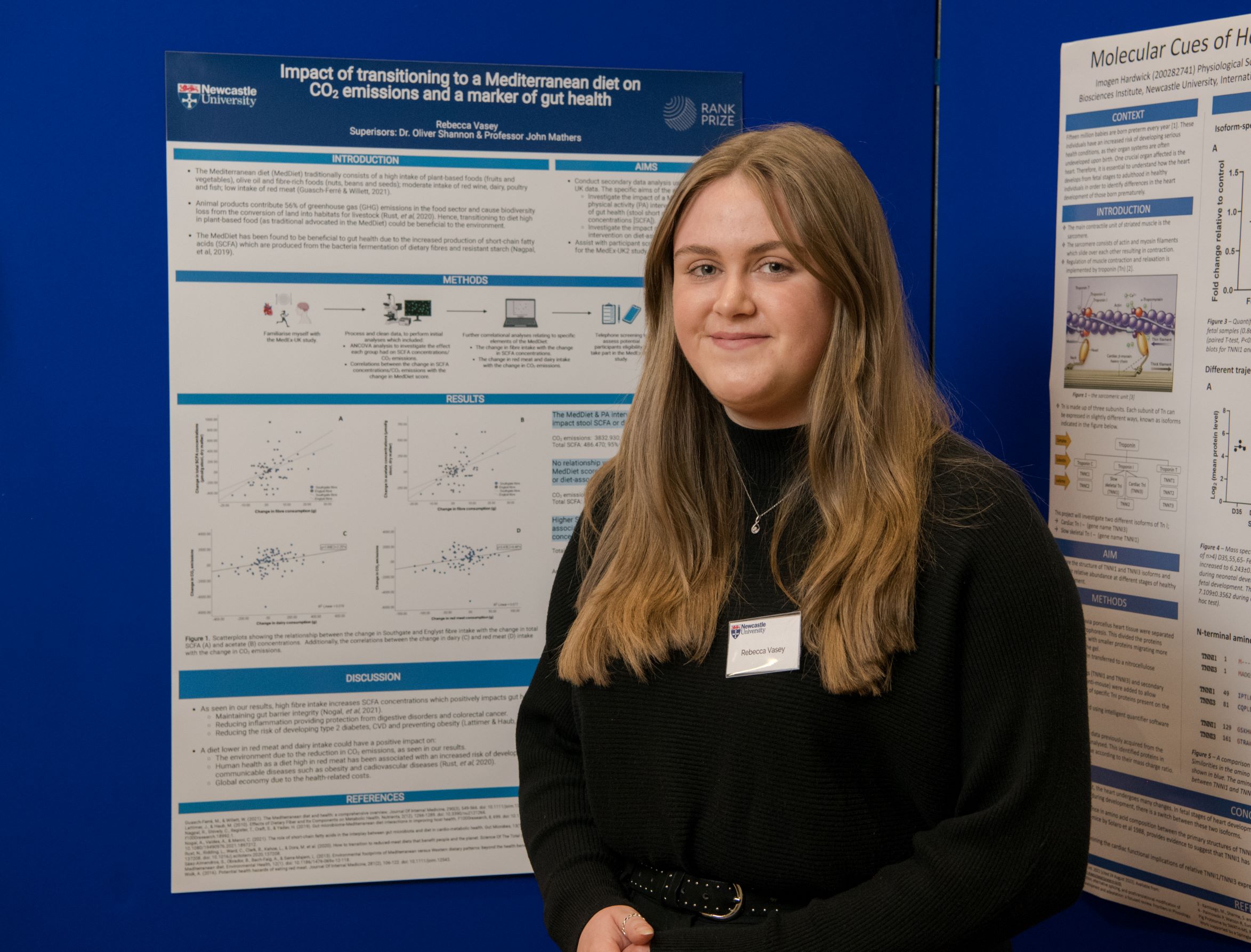2022 Participants
 Rebecca Vasey
Rebecca Vasey
- UG Joint Honours Psychology and Nutrition
- Impact of transitioning to a Mediterranean diet on CO2 emissions and a marker of gut health
The study aimed to investigate the impact of a 24-week Mediterranean diet (MedDiet) intervention alone, or alongside increased physical activity (PA) levels, on carbon dioxide (CO2) emissions and on fecal short chain fatty acid (SCFA) concentrations. This was achieved by performing secondary data analysis on the MedEx-UK data, which revealed that the MedDiet and PA intervention had no significant impact on fecal SCFA concentration or diet-associated CO2 emissions. A significant positive correlation was found between fibre intake and total SCFA and acetate (an individual SCFA) concentrations. Higher SCFA concentrations may positively impact gut health and reduce the risk of developing several non-communicable diseases. A reduced consumption of red meat and dairy products were associated with a reduction in diet-associated CO2 emissions. This finding could have a positive impact on the environment and human health as the overconsumption of red meat is associated with a higher risk of developing non-communicable diseases.
Funding source: Rank Prize
Project supervisors: Dr. Oliver Shannon and Professor John Mathers
